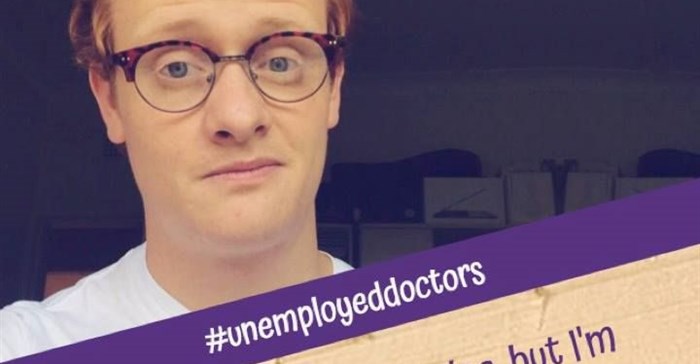
Three provinces - Gauteng, the Western Cape and KwaZulu-Natal – are to blame for the shortage of junior doctor posts, says Health Minister Aaron Motsoaledi. He argues the lack of placements for those needing to complete their mandatory internships and community service has become an “annual ritual” and warns he will take guilty provinces to court if it continues.
As of late Thursday, about 160 junior doctors across the country had still not been allocated internship or community service positions. This figure was down from about 316 just days earlier and comes little more than a month before the country’s junior doctors are expected to take up internship and community service posts on 1 Janaury 2018.
The Health Professions Council of South Africa (HPCSA) determines how many of each type of position provinces must provide for junior doctors. It then becomes each province's responsibility to find the money to pay for these posts.
But Motsoaledi says despite statutory obligations to make funding available the provincial governments of Gauteng, the Western Cape and KwaZulu-Natal remain reluctant to do so.
“Internship is a statutory function. It's not a choice of the state whether they must give you an internship post or not it's statutory – you have got to do it,” he explains.
The HPCSA accredits certain public hospitals and clinics in each province to host internship and community service doctors based on their training capacity. For this reason, better-resourced provinces such as Gauteng, Western Cape and KwaZulu-Natal are allocated the bulk of intern and community service doctors. For instance, Gauteng must accommodate about 1,100 interns or about twice as many as the Western Cape. Meanwhile, the HPCSA has designated 900 internship positions for KwaZulu-Natal.
“[The provinces] must go and create these posts. That is where the problem is because provincial governments just don't do it. Some of them just decide they don't have money and that is why I have been impressing on them that it's not your choice – it's something that you have got to do.”
In a statement on Thursday, South African Medical Association chairperson Mzukisi Grootboom called on premiers to take urgent action to address the shortage of jobs for new medical graduates.
And Motsoaledi warns that if provinces do not begin fulfilling their obligations to fund junior doctor posts, he may be forced to take them to court.
“This is the first time that I am disclosing this because we are all [working for] government and I don’t want it to [look] as if I am ... blaming others, but this has been happening every year. It will obviously be embarrassing because I am working with provinces and premiers if one day I have to take them to court. But what option do I have if they keep on refusing to do something that is a statutory function?”
About 258 junior doctors had also been left without internship or community services positions in November 2016 as part of that year’s application cycle, then-Junior Doctors’ Association of South Africa (Judasa) President Zahid Badroodien told Bhekisisa at the time.
Judasa member Farah Jawitz says initial applications were delayed by four months. Now, as time is running short, she fears that final round placements will be informal and rushed. Meanwhile, Judasa has created a Facebook campaign to highlight the plight of unemployed doctors.